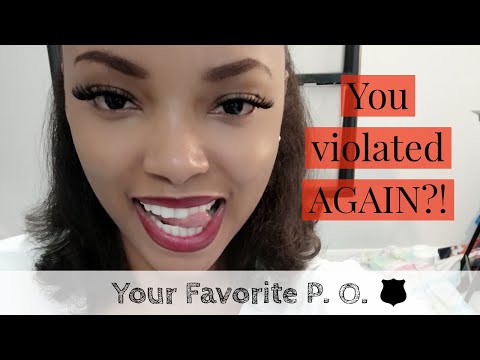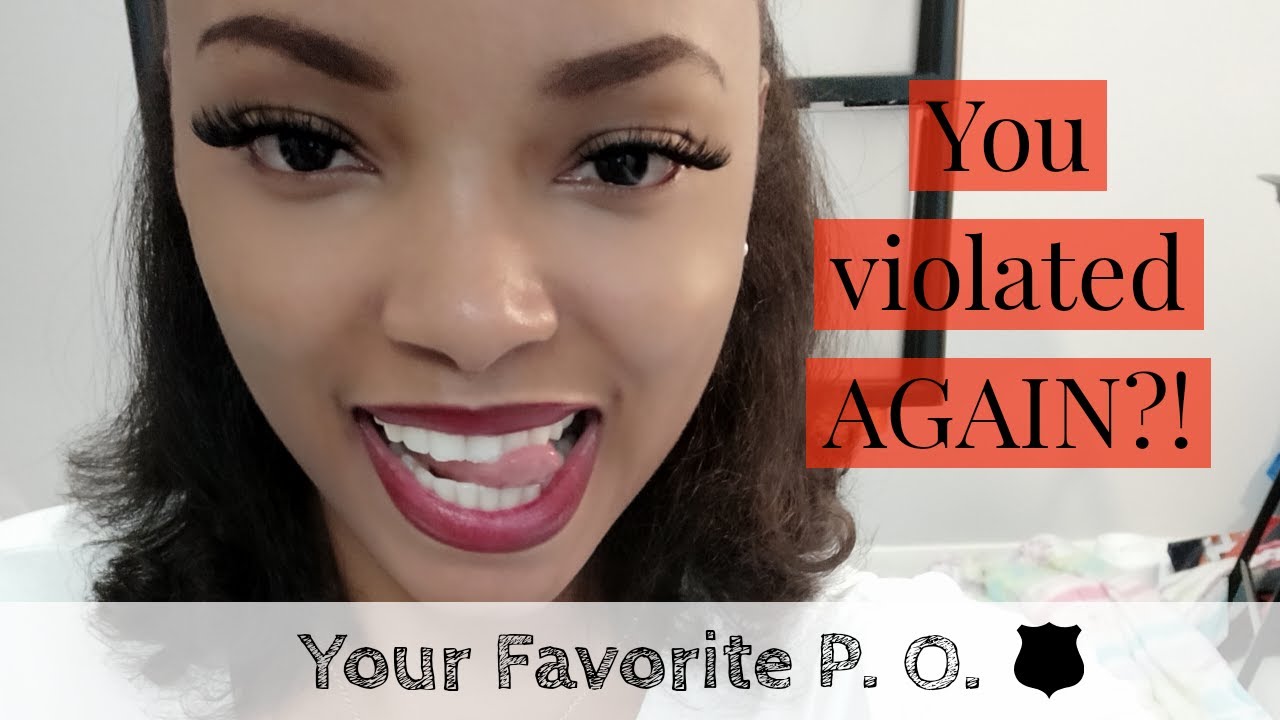Violating probation for the first time can have serious consequences that may leave you feeling anxious and uncertain about what lies ahead. When you breach the terms of your probation, whether it’s by missing check-ins with your probation officer, failing a drug test, or committing a new offense, you may find yourself facing a daunting legal process. Consequences, penalties, and potential repercussions can vary depending on the nature and severity of your violation, as well as the discretion of the judge overseeing your case. From increased supervision and stricter probation conditions to potential jail time or extended probation, the implications of violating probation can have a significant impact on your life and future. Understanding your rights and navigating the legal system becomes crucial in such circumstances. Seeking the guidance of a skilled attorney who specializes in probation violations can be a wise choice, as they can help you build a strong defense, negotiate with prosecutors, and strive for a favorable outcome. While the prospect of facing the consequences of violating probation may seem daunting, it is important to remember that there is still hope for redemption and rehabilitation. Taking proactive steps to rectify the situation, such as attending counseling or treatment programs, demonstrating remorse, and complying with all future probation conditions, can potentially mitigate the penalties and pave the way for a fresh start.

Consequences of Violating Probation for the First Time
| Category | Consequence |
|---|---|
| Legal Ramifications | Upon violating probation for the first time, the individual may face legal consequences such as an arrest warrant being issued, a probation violation hearing being scheduled, and potential revocation of probation. The court may also impose additional penalties, including fines or an extension of the probationary period. |
| Probation Modification | Following a probation violation, the terms and conditions of probation may be modified by the court. This could involve stricter supervision, increased reporting requirements, mandatory counseling or rehabilitation programs, or even house arrest. The court may also impose curfews or restrict the individual’s travel. |
| Potential Incarceration | If the violation is deemed severe or repeated, the court may order the individual to serve a period of incarceration. This could involve serving the remaining sentence in jail or prison, or a combination of jail time followed by a reinstatement of probation. The length of incarceration will depend on the nature of the violation and the judge’s discretion. |
| Criminal Record Implications | A probation violation can have lasting consequences on an individual’s criminal record. It may result in the violation being permanently recorded, potentially affecting future employment prospects, housing opportunities, professional licenses, and even eligibility for certain government benefits. It is crucial to avoid probation violations to minimize these long-term implications. |
| Rehabilitation and Treatment | As a response to a probation violation, the court may require the individual to undergo rehabilitation or treatment programs, such as substance abuse counseling, anger management classes, or mental health therapy. These programs aim to address the underlying issues contributing to the violation and promote successful rehabilitation within the community. |
Breaking Probation? Get Back on Track with Your Favorite P.O.’s Ultimate Guide
What Happens if You Violate Probation for the First Time?
Probation is a legal arrangement that allows individuals convicted of a crime to avoid serving time in jail or prison, on the condition that they adhere to certain terms and conditions set by the court. These conditions may include regular check-ins with a probation officer, drug testing, community service, or attending counseling or therapy sessions. However, if a person violates their probation, serious consequences can follow. This article will explore the potential outcomes of violating probation for the first time.
The Violation Process
When a person on probation violates the terms of their probation, the process of addressing the violation is set in motion. Probation officers are responsible for monitoring individuals on probation and reporting any violations to the court. Upon discovering a violation, the probation officer will typically conduct an investigation to gather evidence and assess the severity of the violation.
If the violation is minor, such as missing a probation appointment or failing a drug test, the probation officer may choose to issue a warning or impose additional conditions. However, if the violation is more serious, such as committing a new crime or failing to complete required programs, the consequences can be much more severe.
Consequences of a First-Time Violation
When someone violates their probation for the first time, several potential consequences can occur:
1. Warning or Increased Supervision
If the violation is relatively minor and the person has otherwise been compliant with the terms of their probation, they may receive a warning from their probation officer. The officer may also decide to increase supervision, requiring more frequent check-ins or additional conditions to prevent further violations. This outcome is more likely if the violation is unintentional or due to extenuating circumstances.
2. Modification of Probation Terms
In some cases, the court may decide to modify the terms of probation rather than revoking it entirely. This could involve adjusting the conditions or extending the length of probation. The goal of modification is to provide additional support or resources to help the individual succeed in completing their probation successfully.
3. Community Service or Fines
For less severe violations, the court may order community service or impose fines as a consequence. Community service allows individuals to give back to their community while serving as a reminder of the importance of compliance with probation conditions. Fines, on the other hand, are monetary penalties that aim to deter future violations.
4. Increased Monitoring and Restrictions
If the violation is more serious, the court may decide to impose stricter monitoring and restrictions. This can include increased check-ins with the probation officer, mandatory participation in counseling or treatment programs, or even electronic monitoring, such as wearing an ankle bracelet. These measures are intended to ensure better compliance with the conditions of probation.
5. Probation Revocation
In the most severe cases, when the violation is significant or repeated, the court may choose to revoke probation entirely. This means that the individual will be required to serve the remaining sentence in jail or prison. The length of the sentence will depend on the original conviction and the severity of the violation. Revocation is typically seen as a last resort when all other options have been exhausted.
Conclusion
Violating probation for the first time can have serious consequences, ranging from warnings and increased supervision to probation revocation and imprisonment. It is crucial for individuals on probation to understand and comply with the terms set by the court to avoid these outcomes. If faced with a violation, seeking legal counsel is highly recommended to navigate the complex legal process and potentially mitigate the consequences.
Consequences of Violating Probation for the First Time:
Frequently Asked Questions
What are the consequences if you violate probation for the first time?
1. Warning or Reprimand: In less serious cases, your probation officer may give you a warning or reprimand for the violation. This serves as a reminder to follow the terms of your probation and may not result in any further action.
2. Increased Supervision: Your probation officer may decide to increase the level of supervision and monitoring to ensure compliance with the probation terms. This may include more frequent check-ins, drug testing, or mandatory counseling.
3. Modification of Probation Terms: If the violation is significant, your probation officer may modify the terms of your probation. This could involve adding additional conditions, such as community service, electronic monitoring, or mandatory treatment programs.
4. Jail Time: In more serious cases, a violation of probation may result in a jail sentence. This is more likely if the violation involves a new offense or poses a significant risk to public safety.
It’s important to note that the consequences of violating probation can vary depending on the jurisdiction and the specific circumstances of your case. It is always best to consult with an attorney if you are facing a potential violation of probation.
What should I do if I violate probation for the first time?
1. Contact Your Probation Officer: Notify your probation officer as soon as possible about the violation. Be honest and provide all relevant information. Cooperating and showing remorse may work in your favor.
2. Consult with an Attorney: It is highly recommended to consult with an attorney who specializes in probation violations. They can provide legal advice, guide you through the process, and represent your interests in court if necessary.
3. Gather Evidence: Collect any evidence or documentation that may support your case and explain the circumstances of the violation. This could include witness statements, receipts, or any other relevant information.
4. Prepare for Consequences: Understand that there may be consequences for the violation. Be prepared to accept responsibility for your actions and be proactive in addressing any issues that led to the violation.
5. Follow Court Orders: Until your violation hearing, continue to comply with all other terms of your probation. This shows a commitment to following the rules and may be viewed positively by the court.
Can I avoid jail time for violating probation for the first time?
1. Severity of the Violation: If the violation is minor and does not involve a new offense or pose a significant risk to public safety, you may have a better chance of avoiding jail time.
2. Cooperation and Remorse: Demonstrating cooperation with your probation officer, taking responsibility for your actions, and showing genuine remorse may work in your favor when it comes to sentencing.
3. Mitigating Circumstances: If there were any mitigating circumstances that led to the violation, such as a medical emergency or a misunderstanding, it’s important to present this information to the court.
4. Legal Representation: Having an experienced attorney who specializes in probation violations can greatly increase your chances of avoiding jail time. They can present your case effectively and argue for alternative penalties or rehabilitation programs.
However, it’s important to note that every case is unique, and the final decision rests with the judge. The judge will consider various factors, including your criminal history, the nature of the violation, and any aggravating or mitigating circumstances.

